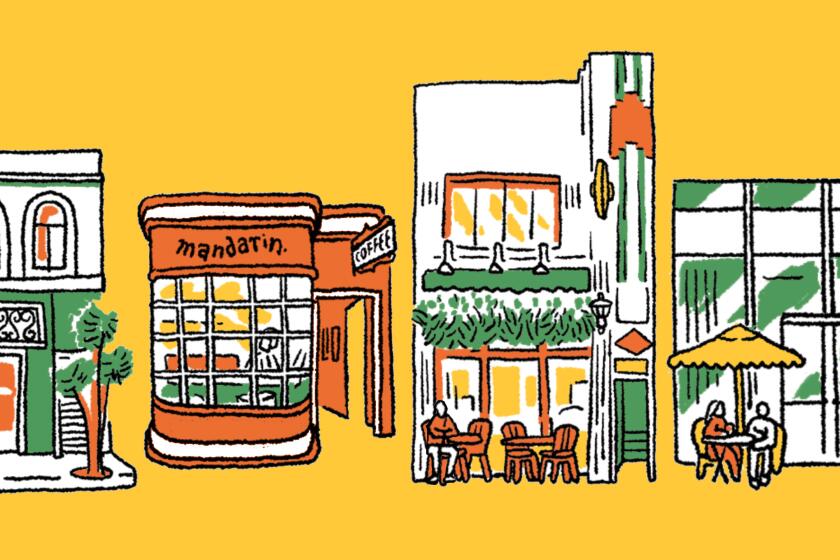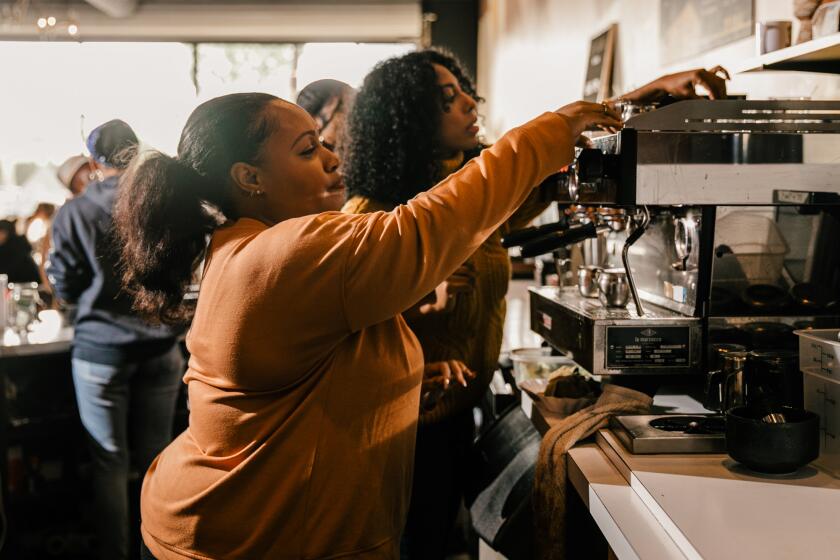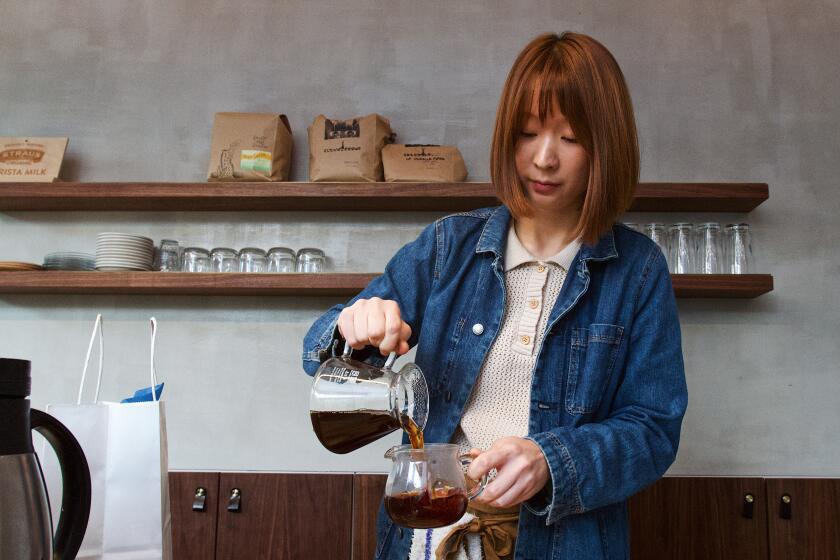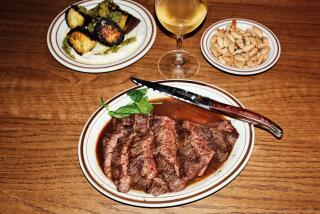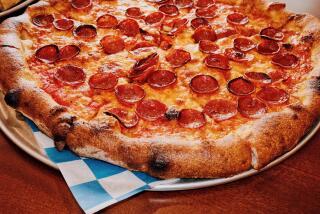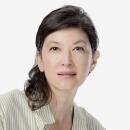A pop-up coffee omakase from Blue Bottleâs founder? Hereâs the secret location
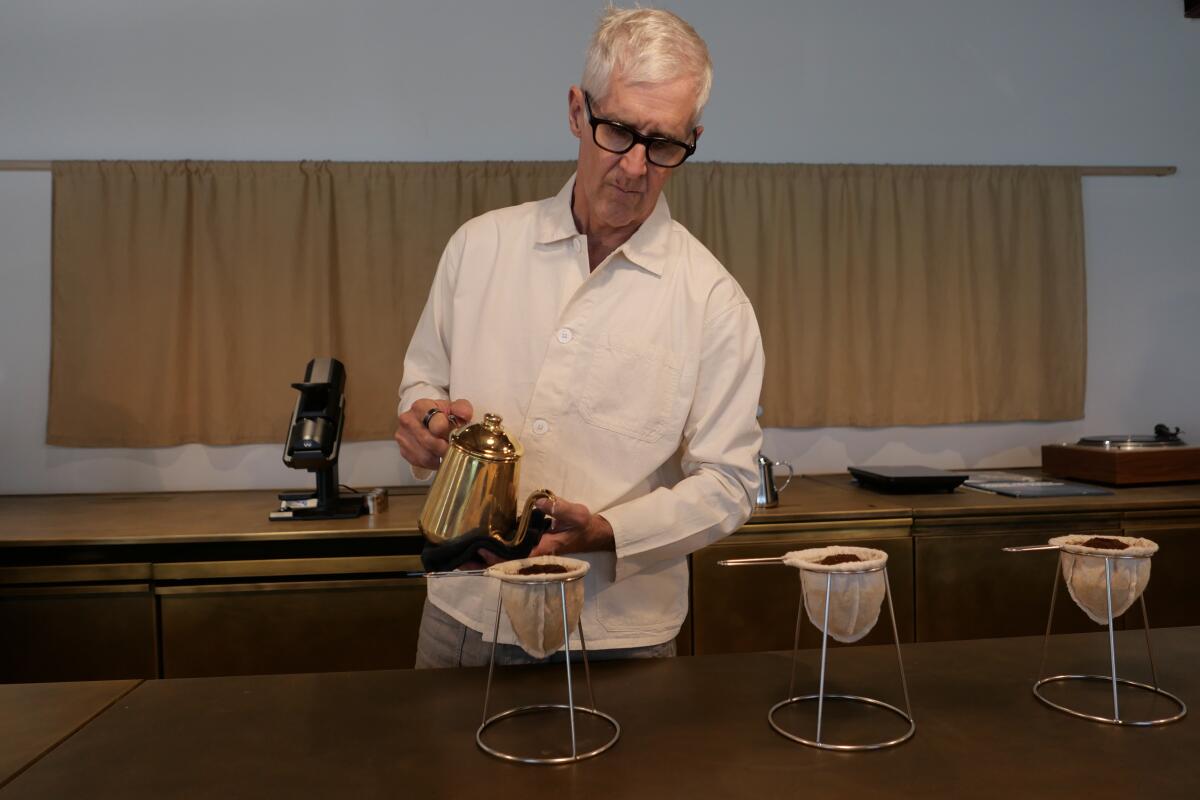
James Freeman, the founder of Blue Bottle Coffee, stands behind a custom brass bar in what was formerly a dry cleaner on Melrose Avenue as the record player spins âO Grande Amor,â pouring tea made from the jasmine-like flowers of the coffee plant.
âIf you are interested in someone, you want to know, where did you grow up? Where did you go to school? How many brothers and sisters do you have?â Freeman says. âSo, we want to learn more about coffee. Where did you grow? What are your flowers? I think thatâs to try to get to the truth of what coffee is.â
A former professional clarinetist who studied philosophy at UC Santa Cruz, Freeman opened Blue Bottle in Oakland more than two decades ago, and the hugely successful brand has been majority-owned by Swiss food giant NestlĂŠ since 2017. Now Freeman has turned his attention to creating an ultra-intimate cafe experience in a temporary space in West Hollywood with a several-course tasting menu â a sensorial deep dive into all parts of the coffee plant, rare beans and precise brewing techniques.
Find the best cafes, freshest brews and your favorite beans in the coffee-shop capital of the world.
Freeman plans to open Blue Bottle Studio as a 40-day experiment starting Sept. 27 with three seatings a day for eight people by reservation. Although high-end coffee tastings have gained traction in cities such as Tokyo, this is the first of its kind in Los Angeles, or the U.S. â a coffee omakase featuring drinks such as tea made with coffee leaves from Matagalpa, Nicaragua, in the style of puâer, and soluble (aka instant) coffee from Bait Alal in Yemen that is improbably clear.
Freemanâs studio experience might have started as an inkling a dozen years ago in the upstairs mezzanine of Blue Bottleâs first location in New York, where six customers at a time could drink coffee made to order via a siphon or nel drip (nel is short for flannel, the fabric through which the coffee is brewed). The idea took shape when Freeman visited the 30,000-square-foot sensory-overload Starbucks in Nakameguro in Tokyo and wondered what the most condensed, considered, uncomplicated environment to drink coffee might be.
The first official Blue Bottle Studio, featuring coffee tastings developed by Freeman and the companyâs head of global innovation, Benjamin Brewer, opened last year in Kyoto at another temporary cafe in a historic machiya townhouse near Nanzen-ji Temple, followed by a pop-up studio in central Hong Kong.
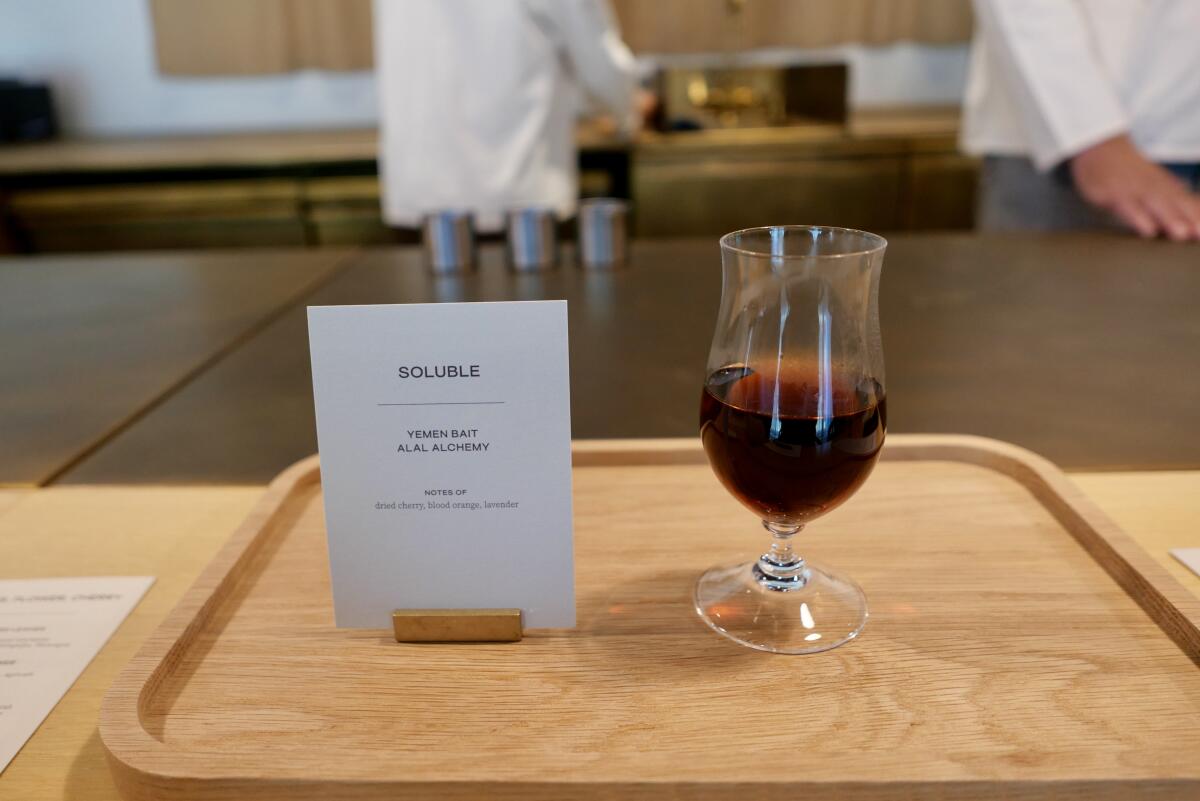
Freeman decided to bring the concept to L.A. âI think it is an interesting time for coffee in Los Angeles,â he says. âThere is a lot of open-mindedness around coffee and experiences centering around what coffee can be.â
Walk up to the retro building flanked in blue tile, and youâre greeted by a white billboard with a haiku by 17th century Japanese poet Matsuo Basho: âThe temple bell stops / But I still hear the sounds / Coming out of the flowers.â
Inside, a spare bar lined with vintage curved wood chairs stretches the length of a room. Hand-sewn curtains were dyed with coffee by fiber artists Lookout & Wonderland. The turntable and speakers were chosen by audio specialist Benjamin Brinkman.
What you wonât see here? An espresso machine.
From downtown to Inglewood and as far as Garden Grove, Black-owned coffee shops are claiming their place in the cityâs stimulating scene.
The menu is an exploration of coffee beans and brew methods without any espresso-based drinks. Freeman, Brewer, director of education Michael Phillips and Blue Bottle Studioâs cafe lead Selina Viguera will be leading some of the tastings through the 40-day residency.
The menu starts with three teas made from the coffee plantâs leaves, flowers and cherries, respectively, from Frinj Coffee, grown locally at Good Land Organics in Goleta by founder-farmer Jay Ruskey.
Another course highlights instant coffee processed by Brewer, who says instant can be beautifully prepared by starting with delicious beans. By pouring 150-degree water into the coffee, âYou get all of the aromatics,â says Freeman. âThe thing that kills good soluble coffee is the water being too hot.â
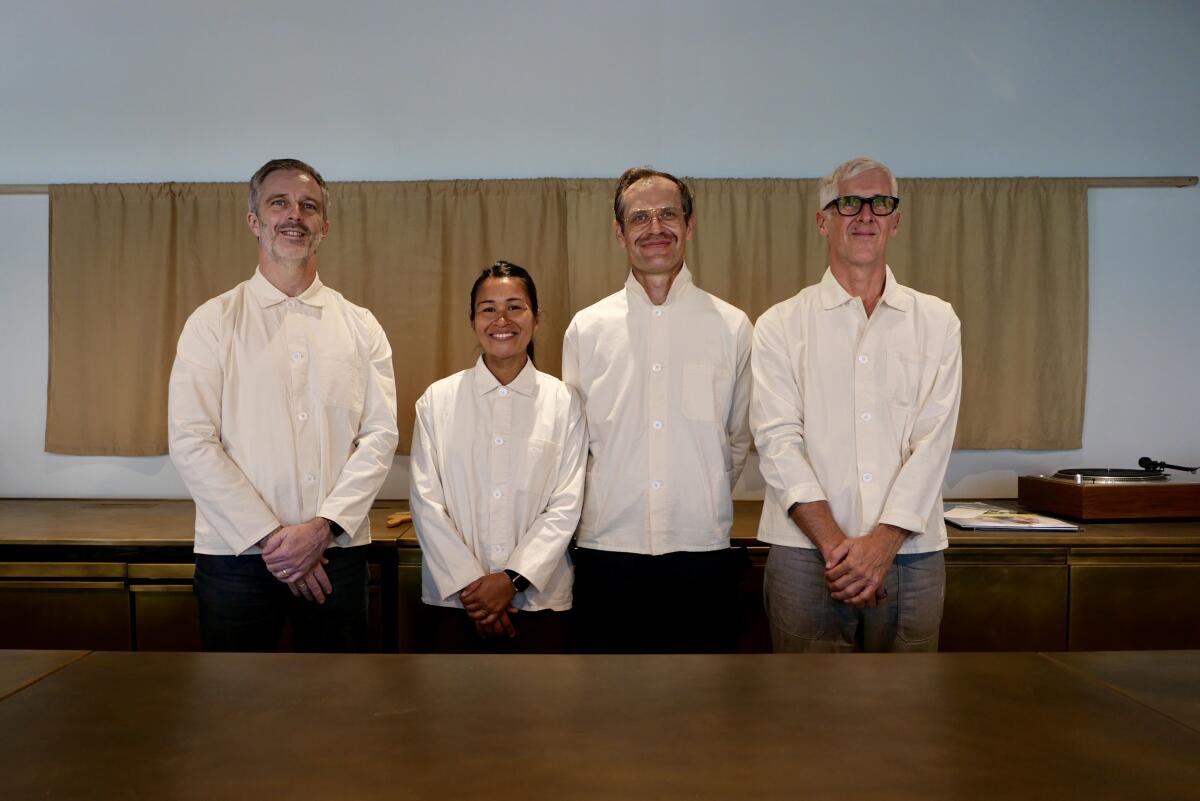
Cups of Frinj Coffeeâs California Good Land organic Gesha are brewed alongside a Gesha microlot from Panamaâs Finca Deborah and Aljidan X1 from Yemenâs Qima Coffee.
âWe wanted to say that beans from this 20-year-old growing region that is 80 miles north of Los Angeles can sit on the same table with a very famous growing region of Panama Gesha and also next to Yemen, the oldest growing region, that has been cultivated pretty much steadily for 500 years,â Freeman says. âIt belongs on that table.â
The California-grown coffee also was served at the Kyoto Blue Bottle Studio, to great response, Freeman says.
Pasadena shop Mandarin Coffee is shedding a light on Asian flavors and beans sourced from Yunnan, introducing customers to the coffee-producing region.
Over several minutes, he brews coffee using a nel drip for a kissaten-style coffee, as thick, rich and complex as espresso, served with a yuzu pâte de fruit and candied shiso leaf made by pastry chef Kiyoshi Tsukamoto.
âHere in this room on Melrose, it feels good to send up a signal flare and have people recognize that this is something interesting,â says Freeman. âHopefully they walk away inspired to try different forms of black coffee.â
Blue Bottle Studio is set to open starting next week, Wednesday through Sunday from 10 a.m. to 4 p.m. with three seatings: 10 a.m., noon and 2:30 p.m. The 90-minute tasting is reservation-only for $75 per person, including gratuity.
8901 Melrose Ave., West Hollywood; make reservations at bluebottlecoffee.com/us/eng/blue-bottle-studio
More to Read
Eat your way across L.A.
Get our weekly Tasting Notes newsletter for reviews, news and more.
You may occasionally receive promotional content from the Los Angeles Times.
